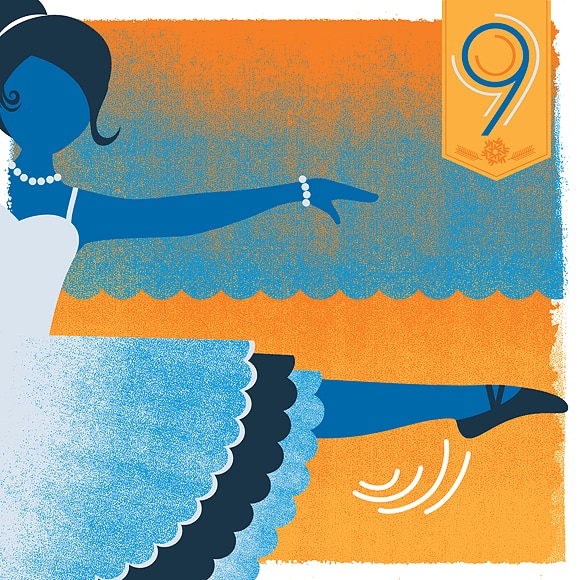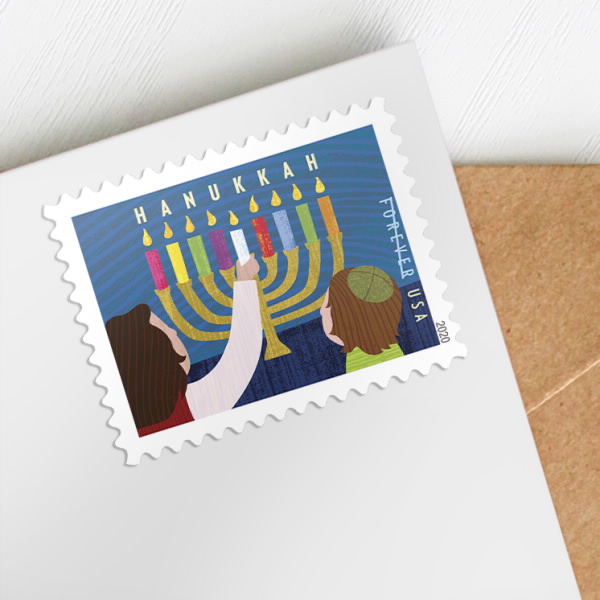 “On the ninth day of Christmas, my true love gave to me, nine ladies dancing ...”
“On the ninth day of Christmas, my true love gave to me, nine ladies dancing ...”The price of Nine Ladies Dancing rose by a hefty 10% in 2022 – their first increase in almost a decade. The price to hire a dance company stayed flat this year, though (at $8,308.12, or 0.0%).
+ + +
The traditional Roman calendar associates this day with the Holy Name of Jesus.* It used to be associated with the day before, with the Feast of the Circumcision. (Even in the present day, the Gospel reading for both feasts is identical.) Then in 1913, Pope Pius X moved it to the Sunday between the second and the fifth January inclusive, and in years when no such Sunday existed, to be observed on the second of January (as it is this year). Don't ask me why.
The circumcision of a newborn male under Jewish law must take place eight days after the child's birth, at which time he is given his name. Small wonder, then, that the Gospel readings for both feasts in the traditional Roman calendar are the same. The Anglicans and Lutherans celebrate both on the first of January, as did the Roman church for quite some time -- you know, being the eighth day and all.
+ + +
And speaking of names ...
 I once heard a comedian pose this important theological question: “If Jesus was Jewish, why did He have an Hispanic name?” That occasion aside, it gives us an occasion of our own, to consider that the name "Jesus" was not an uncommon one in His day. Brian Palmer writes for Slate:
I once heard a comedian pose this important theological question: “If Jesus was Jewish, why did He have an Hispanic name?” That occasion aside, it gives us an occasion of our own, to consider that the name "Jesus" was not an uncommon one in His day. Brian Palmer writes for Slate:Many people shared the name. Christ's given name, commonly Romanized as Yeshua, was quite common in first-century Galilee. ("Jesus" comes from the transliteration of Yeshua into Greek and then English.) Archaeologists have unearthed the tombs of 71 Yeshuas from the period of Jesus' death. The name also appears 30 times in the Old Testament in reference to four separate characters -- including a descendant of Aaron who helped to distribute offerings of grain (2 Chronicles 31:15) and a man who accompanied former captives of Nebuchadnezzar back to Jerusalem (Ezra 2:2) ...
How would Christ have been addressed by those around him?
He certainly would not have been addressed as "Mister Christ." After all, "Christ" was not a name, but an honorific, a title if you will, from the Greek Khristós for "anointed one." The Hebrew word was Moshiach or "Messiah." He would have been known by His given name, and the name of His father -- “Yeshua bar Yehosef” or “Jesus Son of Joseph.” In later centuries, or in present-day Iceland, we might easily surmise His being addressed as “Jesus Josephson,” Or, given the nature of the family business, He might have been known as “Jesus Carpenter.”
We also know that He eventually left Nazareth in Galilee, the town of His childhood, for other parts of that country, as well as Samaria and Judea. In those places, He would have been just as likely addressed as “Yeshua Nasraya” or “Jesus of Nazareth.” The Gospel accounts tell us of the inscription on the Cross, which gave both His name and His offense, in three languages: “Jesus of Nazareth, King of the Jews” (actually, “Iesus Nazarenus Rex Iudaeorum” in Latin, “Ihsoûs ó Nazoraîos ó Basileùs tôn ’Ioudaìov” in Greek, and “Yeshua HaNazarei v Melech HaYehudim”, or more precisely, "ישו מנצרת מלך היהודים" in Hebrew). After all, a guy from a hick town like Nazareth would have been rather conspicuous in a high-falutin' place like Jerusalem, especially outside of the High Holydays.
 The Scriptures also record him being addressed as “Jesus Son of David.” A man would also have been known for his extended family; that is, his tribe or house, as in “Yeshua ben David” or “Jesus of the House of David.” But even though family lineage was everything in Jewish society, such an address might not have been as common in everyday use.
The Scriptures also record him being addressed as “Jesus Son of David.” A man would also have been known for his extended family; that is, his tribe or house, as in “Yeshua ben David” or “Jesus of the House of David.” But even though family lineage was everything in Jewish society, such an address might not have been as common in everyday use.+ + +
Devotion to the Holy Name has also been the inspiration for the National Association of the Holy Name Society. HNS chapters have been the basis for men's clubs in Catholic parishes for generations. Their mission includes the corporal works of mercy (feeding the hungry, clothing the naked, comforting the afflicted, that sort of thing), and acts of reparation for the misuse of the holy name.
+ + +
On that note, we have a couple of Holy Name stories.
First is an account from an old veteran Scouter, an American living in Mexico.
"While visiting my present Mexican hometown several years ago, I got an urgent message to call collect to an unfamiliar number in Chicago. Turned out it was the FBI, hoping I could help them; did I know anyone in México named 'Chuy,' a common nickname for anyone, male or female, carrying the name Jesús. When I told the agent yes, explained that there were seven in the village where I was staying, including the sheriff, he responded, 'Oh, you mean there's more than one?'"
And of course, I have one of my own.
Once I had a confessor who gave me very good advice, for those occasions when I would, shall we say, use a very short form of the Jesus Prayer in an inappropriate context. He advised me that I say immediately afterward, “Blessed be His holy name.” It's no substitute for the Sacrament of Penance, but it's a rather handy form of reparation.
Whatever works.
+ + +
* At one time combined with the Feast of the Circumcision on 1 January, before the 1913 calendar reforms of Pope Pius X, thus the revisionist conspiracy is even worse than many are led to believe. Adding to the mystery, is that the controversial liturgist Annabale Bugnini was only born the previous year, calling his own part in said conspiracy into question.
See all twelve days in progress at the "xmas12days2023-2024" label.







